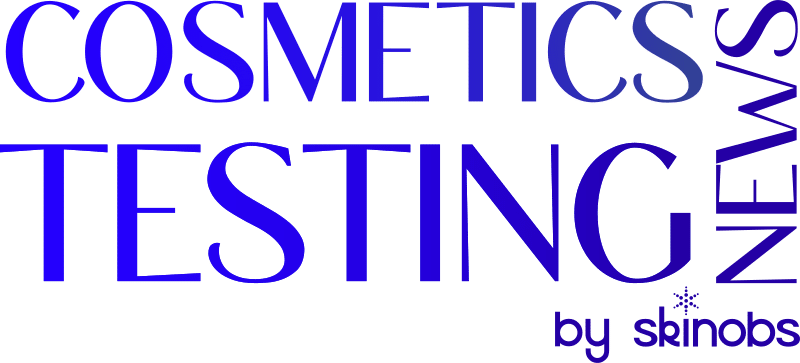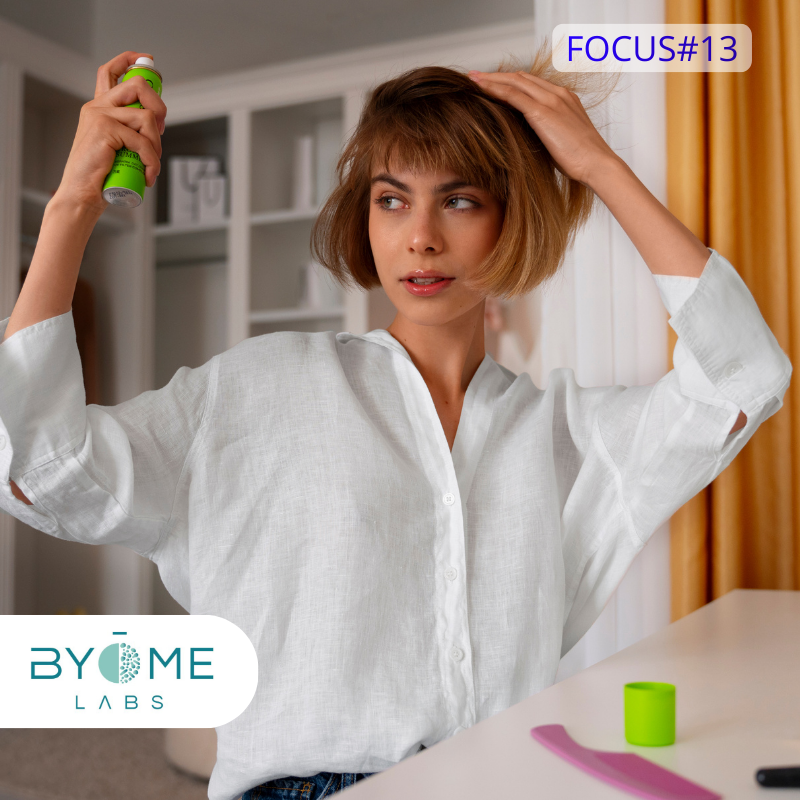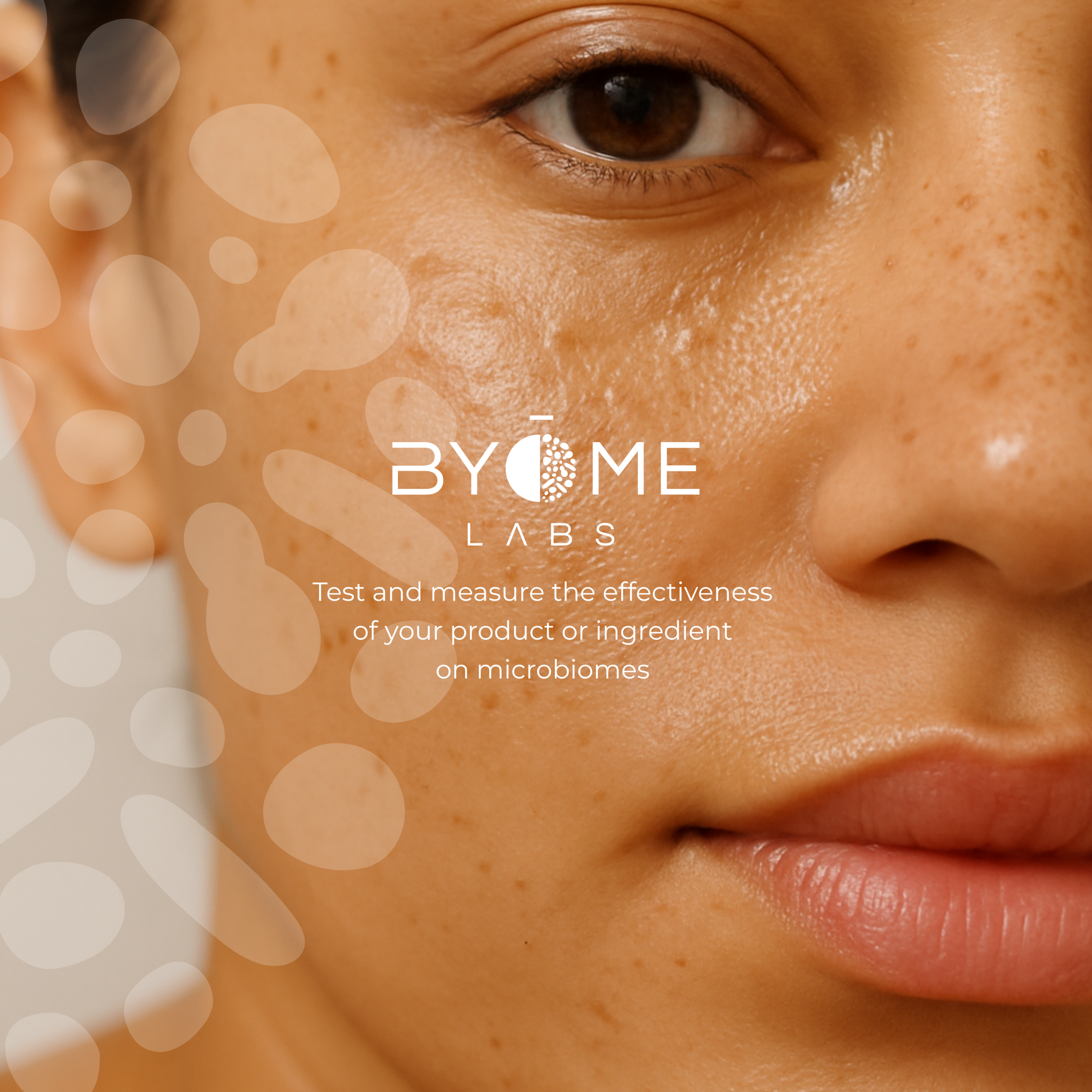In summer, the sun shines, and your skin looks radiant, giving the impression that your acne has vanished… Unfortunately, this is an illusion! Come autumn, the pimples will make a strong comeback, which is known as the rebound effect. Where does this phenomenon come from? How can you avoid it while preserving your skin microbiome?
The skin itself is an ecosystem sensitive to external variations in temperature, humidity, and ultraviolet radiation (UVA and UVB), which specifically modulate the composition of its microbiome and its ability to colonize the skin, challenging its entire balance.
Acne, an inflammatory skin condition affecting more than 6 million people in France, is often caused by increased sebum production, hyperkeratinization, inflammation, and the colonization of follicles by the bacteria C. acnes.
Beyond its impact on the skin, this condition has significant psychosocial repercussions. Often a source of embarrassment and frustration, acne seems to miraculously disappear with the first rays of the sun, but this is far from the case.
While the sun can temporarily reduce blemishes, it is ultimately detrimental to our skin microbiome as it dries out the skin, leading to increased sebum production to compensate for the loss of hydration.
Research has highlighted the essential role of the skin microbiome in skin health. Composed of microorganisms living on the surface of our epidermis, it plays a key role in protecting against infections by producing antimicrobial peptides, and some of these microorganisms are involved in the production of molecules that maintain hydration.
Excessive sun exposure, combined with inappropriate use of certain cosmetic products, disrupts this delicate balance.
Exposure to UV rays (UVA and UVB) decreases the Shannon index, indicative of microbial diversity on the skin’s surface. Microbial diversity is an indicator of good skin microbiome health. Lactobacilli are significantly affected, although they fully contribute to skin balance. Conversely, UV rays increase the number of cyanobacteria producing lipopolysaccharides, which are irritating to the skin.
Inflammation and hyperseborrhea, which clog the skin’s pores, are two factors that favor the proliferation of C. acnes, thus exacerbating skin problems, including acne flare-ups after sun exposure.
This is where BYOME LABS comes in, a French biotech startup specializing in microbiome skin testing and analysis. With our team of experts, we test the impact of cosmetic products on the skin flora and support cosmetic brands in developing innovative solutions to preserve this balance. BYOME LABS has also created a “Microbiome Friendly” certification, ensuring consumers that their cosmetic products respect their skin microbiome.
To limit the damage caused by the interactions between the sun, skin microbiome, and acne-causing bacteria, it is essential to adapt your beauty routine:
- Cleanse your face daily with gentle cleansers to remove impurities without irritating the skin and further disrupting the skin microbiome.
- Hydrate your skin according to its needs to prevent dryness. Be careful to avoid photosensitizing ingredients that could weaken the skin!
- Use exfoliating products to unclog pores and remove dead skin cells. To preserve your skin flora, opt for chemical exfoliants (fruit acids, AHA, BHA, PHA…) without overusing them.
- Protect your skin from the sun with high SPF to avoid damage from UVB and UVA rays, year-round!
Preventing the rebound effect of acne is not limited to using appropriate products during or after sun exposure. It is also important to take care of your skin throughout the year by using products suited to your skin type, avoiding overly harsh products that could disrupt the skin microbiome, and adopting a regular skincare routine.
By enabling cosmetic brands to scientifically demonstrate their products’ activity on the skin microbiome and exploring prebiotic or probiotic activities in their products, BYOME LABS paves the way for preserving our skin’s balance, allowing you to fully enjoy the pleasures of summer with peace of mind.

CONTACT
Niamey PEREIRAO, Sales assistant
niamey.pereirao@byomelabs.com

Sources:
Burns EM, Ahmed H, Isedeh PN, Kohli I, Van Der Pol W, Shaheen A, Muzaffar AF, Al-Sadek C, Foy TM, Abdelgawwad MS, Huda S, Lim HW, Hamzavi I, Bae S, Morrow CD, Elmets CA, Yusuf N. Ultraviolet radiation, both UVA and UVB, influences the composition of the skin microbiome. Exp Dermatol. 2019 Feb;28(2):136-141. doi: 10.1111/exd.13854. Epub 2019 Jan 14. PMID: 30506967; PMCID: PMC7394481.
Lee WJ, Chae SY, Ryu HS, Jang YH, Lee SJ, Kim DW. Inflammatory Cytokine Expression and Sebum Production after Exposure of Cultured Human Sebocytes to Ultraviolet A Radiation and Light at Wavelengths of 650 nm and 830 nm. Ann Dermatol. 2015 Apr;27(2):163-70. doi: 10.5021/ad.2015.27.2.163. Epub 2015 Mar 24. PMID: 25834355; PMCID: PMC4377405.





